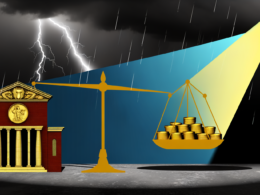Explore the future of gaming with John Smedley’s #ReaperActual and updates on #MapleStoryUniverse. Dive into the world of #CryptoGames today! 🚀🎮
- Introduction: Understanding the Impact of Blockchain on Gaming
- The Genesis of Blockchain in Gaming: A Historical Perspective
- Main Insights on Reaper Actual and MapleStory Universe
- Challenges in the Crypto Gaming Landscape
- The Future of Crypto Gaming: Trends and Predictions
- The Rise of Play-to-Earn Models
- Continued Integration of Blockchain in Mainstream Games
- The Evolution of Decentralized Gaming Communities
- Final Reflections on the Crypto Gaming Revolution
Introduction: Understanding the Impact of Blockchain on Gaming
The gaming industry is no stranger to innovation and transformation. As technology advances, the integration of blockchain and cryptocurrency into gaming has started to reshape the landscape, offering new opportunities and experiences for players and developers alike. This article delves into the intriguing developments within crypto gaming, focusing on the launch of “Reaper Actual” by John Smedley and the evolution of the “MapleStory Universe.” Through these examples, we will explore how blockchain technology is influencing the gaming sector, the challenges it faces, and what the future holds for crypto games.
The Genesis of Blockchain in Gaming: A Historical Perspective
The concept of integrating blockchain technology into gaming isn’t entirely new. It began gaining traction in the early 2010s when developers and tech enthusiasts started exploring the potential of decentralized systems. Early experiments with blockchain in gaming were mostly focused on creating decentralized virtual currencies and marketplaces. As the technology matured, it paved the way for more innovative applications, such as non-fungible tokens (NFTs) and decentralized autonomous organizations (DAOs), which have become integral to the crypto gaming ecosystem.
From Virtual Currencies to NFTs
Initially, blockchain’s role in gaming was limited to virtual currencies. Games like “Cryptokitties” popularized the concept of NFTs, allowing players to own unique digital assets. This marked a significant shift in how in-game items were perceived, moving from mere data points to valuable digital collectibles that could be bought, sold, or traded outside the game’s ecosystem. This evolution has set the stage for more complex applications, such as those seen in “Reaper Actual” and “MapleStory Universe.”
The Impact of Blockchain on Game Development
Blockchain technology offers several advantages for game developers. It provides a secure and transparent environment for transactions, reduces the risk of fraud, and enables the creation of decentralized marketplaces. These features are particularly appealing for multiplayer games, where trust and security are paramount. Moreover, blockchain allows developers to create games with player-driven economies, where the community has a direct impact on the game’s development and evolution.
Main Insights on Reaper Actual and MapleStory Universe
Reaper Actual: A New Frontier in Blockchain Gaming
John Smedley, a veteran in the gaming industry known for his work on “EverQuest” and “Planetside,” has ventured into the crypto gaming space with “Reaper Actual.” This blockchain-integrated first-person shooter (FPS) game promises to revolutionize the genre by combining elements from popular titles like “Call of Duty” and “Escape from Tarkov” with blockchain technology.
The Unique Selling Proposition of Reaper Actual
Set on the fictional island of Marova, “Reaper Actual” features the largest FPS map ever created, offering an expansive open-world experience. Players, known as “Reapers,” engage in strategic gameplay by upgrading and defending bases while navigating conflicts among AI-controlled factions. The game leverages the Tezos blockchain to enable NFT-based ownership of in-game items, allowing players to trade assets on both Web3 and traditional gaming marketplaces.
The Business Model and Market Potential
Following a successful $30.5 million funding round, “Reaper Actual” aims to attract both Web2 and Web3 players by offering a blend of traditional and blockchain gaming experiences. The game will initially require players to purchase limited-edition bases as NFTs, with plans to transition to a free-to-play model six months after its full release. Smedley believes that this approach, coupled with the game’s innovative features, could bring millions of new players into the crypto gaming fold.
The Evolution of MapleStory Universe
“MapleStory Universe” represents the crypto-powered evolution of the beloved MMORPG franchise, “MapleStory.” With a player base of over 260 million, the franchise’s transition into the blockchain sphere is a significant milestone for the crypto gaming industry.
Integrating Blockchain into a Classic Franchise
The “MapleStory Universe” ecosystem centers around “MapleStory N,” a PC-based game that recreates the original side-scrolling experience with a blockchain twist. In-game items are represented as NFTs on the Avalanche-based Henesys L1 network, allowing players to truly own and trade their digital assets. This integration aims to enhance gameplay by offering players more control over their in-game possessions.
Expanding the Universe with New Experiences
Developer Nexpace plans to expand the “MapleStory Universe” by introducing over a dozen mobile and web experiences by Q1 2026. These lighter applications will allow players to engage with the game during commutes or breaks, addressing the needs of an aging fanbase with less time for intensive PC gaming. The vision mirrors EA’s Ultimate Team model, where mobile apps complement console gameplay, creating a more accessible and engaging ecosystem.
Challenges in the Crypto Gaming Landscape
While the integration of blockchain in gaming offers exciting possibilities, it also presents several challenges that developers and players must navigate.
One of the primary challenges facing crypto games is navigating the complex regulatory landscape. As governments worldwide grapple with how to classify and regulate cryptocurrencies and NFTs, game developers must ensure compliance with a patchwork of laws and regulations. This can be particularly challenging for global games like “Reaper Actual” and “MapleStory Universe,” which must adhere to different legal standards across multiple jurisdictions.
Ensuring Security and Trust
Security is a critical concern in the crypto gaming space. The decentralized nature of blockchain technology can make it an attractive target for hackers, who may attempt to exploit vulnerabilities to steal valuable digital assets. Developers must prioritize robust security measures to protect players’ investments and maintain trust within the community.
Overcoming Adoption Barriers
Despite the growing interest in crypto games, mainstream adoption remains a significant hurdle. Many players are still unfamiliar with blockchain technology and may be hesitant to engage with games that require cryptocurrency transactions or NFT purchases. Educating players and simplifying the onboarding process will be crucial for expanding the player base and driving widespread adoption.
The Future of Crypto Gaming: Trends and Predictions
As the crypto gaming industry continues to evolve, several trends and predictions offer insights into its future trajectory.
The Rise of Play-to-Earn Models
Play-to-earn (P2E) models, where players earn cryptocurrency or NFTs by participating in games, are expected to gain traction in the coming years. This approach offers players a new way to monetize their gaming experiences, potentially attracting a broader audience and driving engagement.
Continued Integration of Blockchain in Mainstream Games
As blockchain technology matures, we can expect to see more mainstream game developers integrating blockchain features into their titles. This could range from NFT-based in-game items to decentralized marketplaces, offering players more ownership and control over their gaming experiences.
The Evolution of Decentralized Gaming Communities
Decentralized gaming communities, where players have a direct say in game development and governance, are likely to become more prevalent. This shift towards community-driven development can foster greater player engagement and create more dynamic and responsive gaming ecosystems.
Final Reflections on the Crypto Gaming Revolution
The integration of blockchain technology into gaming is a game-changer, offering new opportunities and challenges for players and developers alike. “Reaper Actual” and “MapleStory Universe” exemplify the potential of crypto games to redefine player experiences and create vibrant, player-driven ecosystems. As the industry continues to evolve, it will be essential for developers to navigate regulatory hurdles, prioritize security, and educate players to unlock the full potential of blockchain gaming. With the right strategies in place, crypto games have the power to transform the gaming landscape and shape the future of interactive entertainment.











